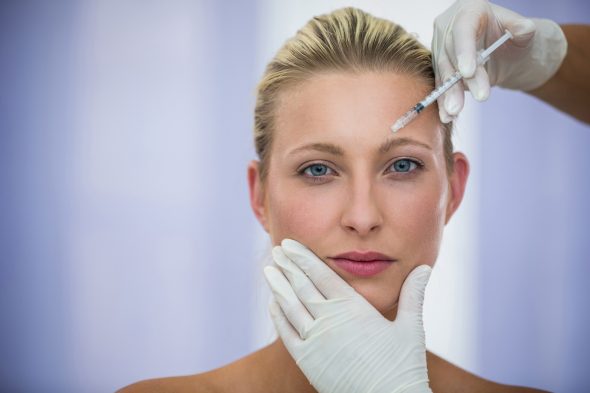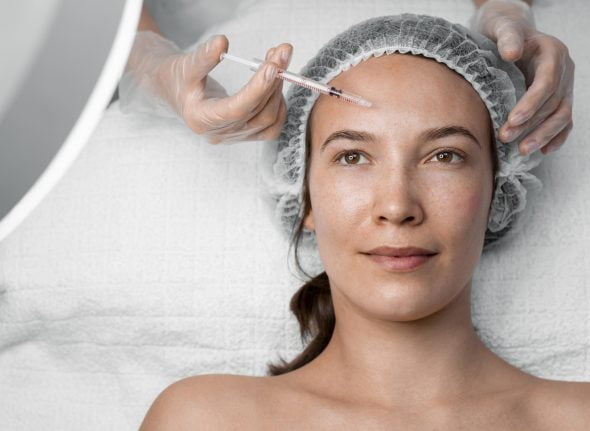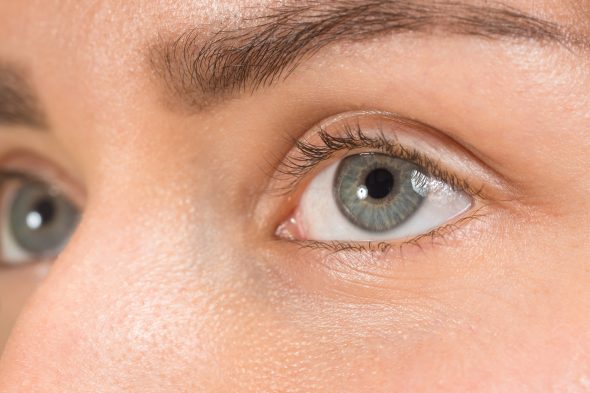

Blepharoplasty Recovery – What to Expect
Daniel Ezra, 23 April 2018

Blepharoplasty is one of the most common cosmetic facial procedures, carried out to improve the appearance of the eye area. Most people seek blepharoplasty surgery to make their eyes appear less tired or to improve their symmetry. Knowing what to expect after the procedure is important and can make the process less overwhelming.
Read below to understand all about the blepharoplasty recovery process, including what to do post-surgery, whether scarring is commonplace and if you will need to undergo further procedures.
Blepharoplasty recovery
Post-surgery
It might seem a little scary, but once you wake up from your blepharoplasty surgery, the first thing you will notice is that your vision is blurry. This is nothing to worry about and does not mean the surgery has been unsuccessful, but rather because of a thick antibiotic ointment which is applied to the eye area to stop the surface area from becoming dry. This should be used for one week post-surgery, four times a day, on the inside of the eye and the wounds.
To prevent the eye from becoming dry, artificial tear drops are prescribed. For 24-48 hours after the surgery, ice packs should be used and patients should also sleep in a sitting up position, using several pillows to reduce the swelling by preventing fluid from accumulating.
Absolutely avoid any strenuous activities, such as heavy lifting or exercising for at least 7 days into the blepharoplasty recovery period. However, patients need to be mobile right away, so we recommend walking at a gentle pace to begin with.
For the first couple of weeks it is recommended that dark sunglasses be worn to protect the eyes from becoming irritated by wind or sun. We also suggest taking regular naps as the eyes can become tired easily during the recovery period.
Is there any bruising?
Moderate swelling and bruising is very normal, though the severity of it will differ significantly from person to person. This should decrease within just 1-2 weeks if you have had an upper eyelid blepharoplasty, whereas an upper and lower eyelid blepharoplasty takes 2-4 weeks. After this time it is generally not at all noticeable that surgery has recently taken place. In a few patients, this swelling and bruising can last for a longer period of time.
Bandages are not normally necessary during the blepharoplasty recovery period, though dressings tend to be placed over the eyes to reduce swelling after the procedure.
Will I be in pain?
This is not a painful procedure and blepharoplasty recovery is relatively easy. Any pain following surgery will usually be slight and can be managed with the appropriate painkillers. These should be distributed to you after the procedure. Most patients will also be able to get up and walk around as normal on the same evening, or the morning after the surgery.
Can I wash my face after blepharoplasty?
How to wash afterwards is one of the most frequently asked questions about the procedure. There are several special requirements to follow:
- 1-2 days after: You can still take a bath or shower, but you need to ensure the eyes are kept dry. If showering, be sure to use the shower head and keep it below the head. It’s best to wash your hair over the sink, ideally with the help of someone else. It is not such an issue if the eyes are splashed with little bits of water – the problem occurs when the wound are exposed to longer periods of moisture.
- 3-7 days after: Eyes can begin being washed gently with water and soap. When towel drying, pat lightly. It’s important to avoid picking at scabs as they will fall off when they are ready to – this is part of the natural healing process.
- Day 7: Sutures are normally removed a week after surgery and then normal washing routines can be carried out.
- 14 days after: You can use makeup again, as long as everything has healed correctly.
Do I need to take time off work?
Although the procedure is not major, patients will still need to take some time off from work. Patients who have undergone upper lid surgery will usually be able to go back after 7-10 days. The recovery time is a little longer for lower lid surgery, with time off work increasing to 10-14 days.
Working from home is certainly appropriate just two days after the surgery and using a computer to do so won’t harm your eyes or affect how well the outcome of the procedure is.
Do I need to get the stitches removed?
Two different types of stitches are used during blepharoplasty; firstly, dissolvable sutures which use glue to close the skin and therefore do not need to be taken out later. The other type of stitches requires removal after 7-10 days or sometimes longer if the area hasn’t settled so well.
Will I have permanent scarring?
Incisions will always leave some kind of scar, though the placement and type surgery will depend on how severe that scarring is. Luckily, the eyelids are one of the easiest places to heal and therefore leave very little by way of scarring. Lower eyelid scars are usually hidden by lashes and barely seen, whilst upper eyelid scars are carefully disguised by creases in the skin, especially when the eyes are open.
Typically, any scarring is small and will only be a few millimetres in length. They can, however, be a bit more noticeable in the crow’s feet area. On the whole though, scarring for blepharoplasty is not an issue and is one of the least noticeable forms of facial cosmetic surgery.
Will I need more surgery later?
Ageing will still occur whether we like it or not and although the results of blepharoplasty last for many years, drooping and bulging of the eyelids will still take place as time goes on. This is not because the surgery has been unsuccessful. As with a lot of cosmetic procedures, more than one procedure may be necessary in order to reach the patient’s ‘ideal’ result.
People who want to enhance the result of their first procedure can undergo a blepharoplasty plus, which is the extra cosmetic procedures that can be undertaken to improve the initial result. Some patients tend to have repeat surgery, called revision blepharoplasty, to improve scarring or to address severe eyelid malposition.
For more information on getting perfect eyelashes, please call our practice on Harley Street, London on 020 7127 8184

